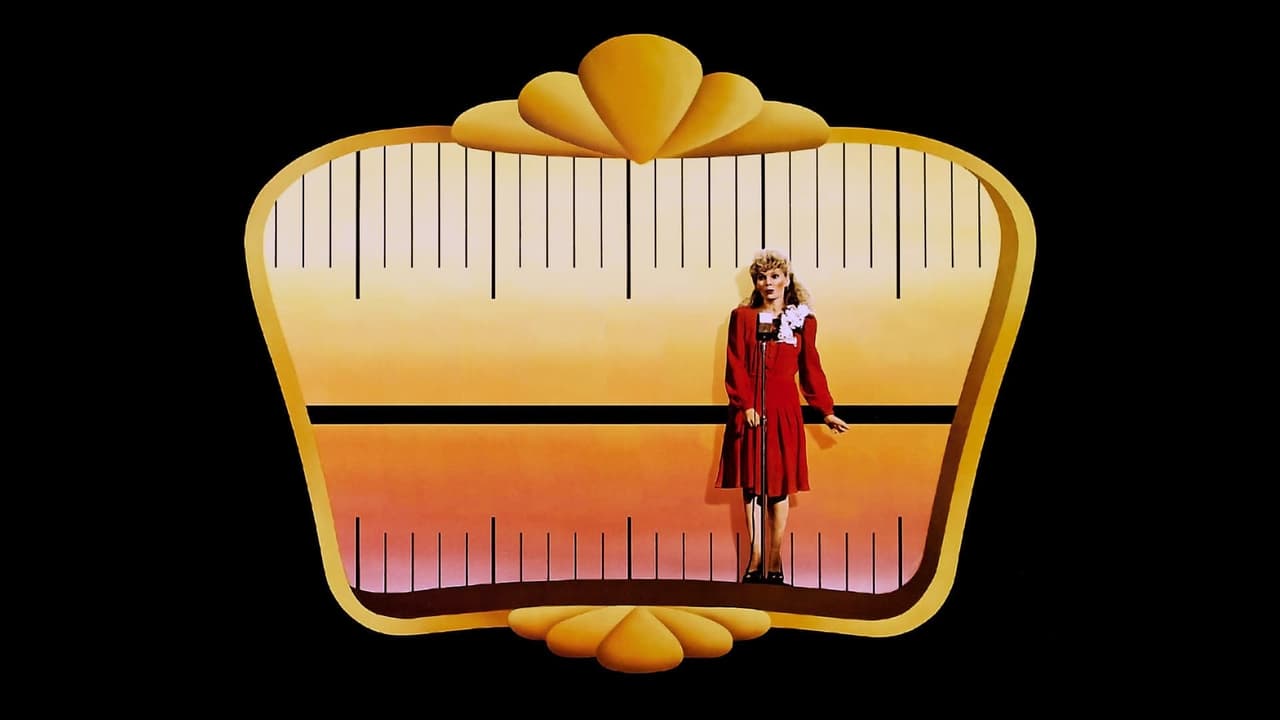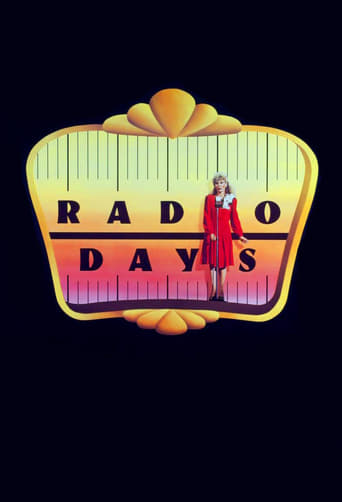

Please don't spend money on this.
... View MoreThis movie was so-so. It had it's moments, but wasn't the greatest.
... View MoreThe best films of this genre always show a path and provide a takeaway for being a better person.
... View MoreThis movie tries so hard to be funny, yet it falls flat every time. Just another example of recycled ideas repackaged with women in an attempt to appeal to a certain audience.
... View MoreThis is one of the greatest movies I have ever experienced. Every thing about this movie works, the players, the music, the scenery. New York has never appeared lovelier, just beautiful shots of Times Square supposedly in the 1940's. There isn't much of a plot, just loosely joined vignettes, but that is enough. When the end of the movie comes, it makes you wish it would go on and on. Do yourself a favor and catch this movie if it ever comes on TV.
... View MoreI think I've decided that my favorite place to be is inside the nostalgia-ridden dreams of Woody Allen. Radio Days, the 1987 feature by writer/director Woody Allen was a beautiful trip to the golden days of radio. Before television ruled our lives and long before the internet was king, men, women, and children all had a favorite radio program--listened to nightly just as the sky faded into the orange glow of dusk. Radio Days was a treat to experience, reminding me of Midnight in Paris, which obviously came after Radio Days but the film of the two that I saw first. I love Midnight in Paris, each time I watch it I'm even more surprised that it's not regarded at one of Woody Allen's masterworks. Certainly, any film that reminds me of another favorite will rank high on my list. Radio Days was one of the blind buys of Woody Allen films that I bought during this retrospective process I've been working on, and one of the films I'm most glad I get to keep.Joe (Seth Green) fondly reminisces on his childhood growing up during the Golden Age of Radio in the late 1930's-early 1940's. Joe's life was filled with many interesting characters. His father would never divulge his occupation, his mother had a slew of extended family members who lived with Joe's family in their New York apartment. Joe's extended family each held their own idiosyncrasies and rituals many of which defined Joe's childhood. Despite how different each member of the family was from the other, the one unifying aspect was their love for the radio. The radio was their ticket to experiencing the lives of the rich and famous, lives that they would never experience themselves. For Joe, the radio was his gateway to mystery and adventure as he filled his days with schemes in hopes of finding a way of obtaining a Masked Avenger secret decoder ring. Joe even reminisces on the lives of those radio personalities he so fondly remembers filling his home on a nightly basis. One aspect that never strayed away from Joe's attention was the music. Each song Joe heard tied back to a memory from his childhood creating a perfect soundtrack to his life.Radio Days is clearly a personal film for Woody Allen. He remarks that each song making it in the film was one he felt a personal connection to and was truly tied to a memory from his own childhood. When a director puts that much of his own life out for public consumption I am immediately grateful and appreciative. I have somewhat of a year's- long love affair going with Francois Truffaut and that's largely due to the fact that each of his films is so deeply personal. I'm just a sucker for an artist truly putting themselves out there, so Radio Days was going to be right up my alley even before I realized that it was a masterpiece in its own right.
... View MoreSlightly Overrated Woody Allen Movie that is not as Funny or Sharply Witted Woodster as some of His others. The Film couldn't Look better and the Soundtrack has Over 40 Songs interspersed among the Nostalgic Narrative. There are some Drop on the Floor Laughs, like the Bill Stern Sports Parody. The rest of the Jokes are Labored at times (the fat uncles fixation on fish) and are Hit and Miss. What Allen Hits Out of the Park is the Period Flavor and, as usual, a Wonderful Cast of Actors.The Short Running Time is a Blessing because if You are not fully Invested in the Time Period, it tends to Run On and On with its Dysfunctional but Loving Family Affairs. But the Film is so Beautiful to Watch that it is Joy for the Eyes with its Warm, Soft Color and Attention to Detail.It's a Woody Allen Movie that by Definition has a Narrow Audience, but Woody does His Best to bring Everyone along on His Trip Down Memory Lane. It's Far from His Best, but a Glorious Picture Nonetheless. That's Genius when a Lesser Effort in a Creator's Canon can be this Good.
... View MoreSomething about this film threatens to overwhelm and swerve off the railway tracks in its first 15 or so minutes. The hectic editing and narrative style is something that with certain films can work, but for this, I just wasn't sure just how well it would all work. A little time later and I found myself swept up in its story and its brilliant use of structure. I think the editing certainly helped it more and while it's not flawless, it works brilliantly for the most part. Technically-, this is a great film. Story-wise, it's good but I don't think it does anything all too great. Still, this is definitely recommended and better than expected after the first few minutes.
... View More